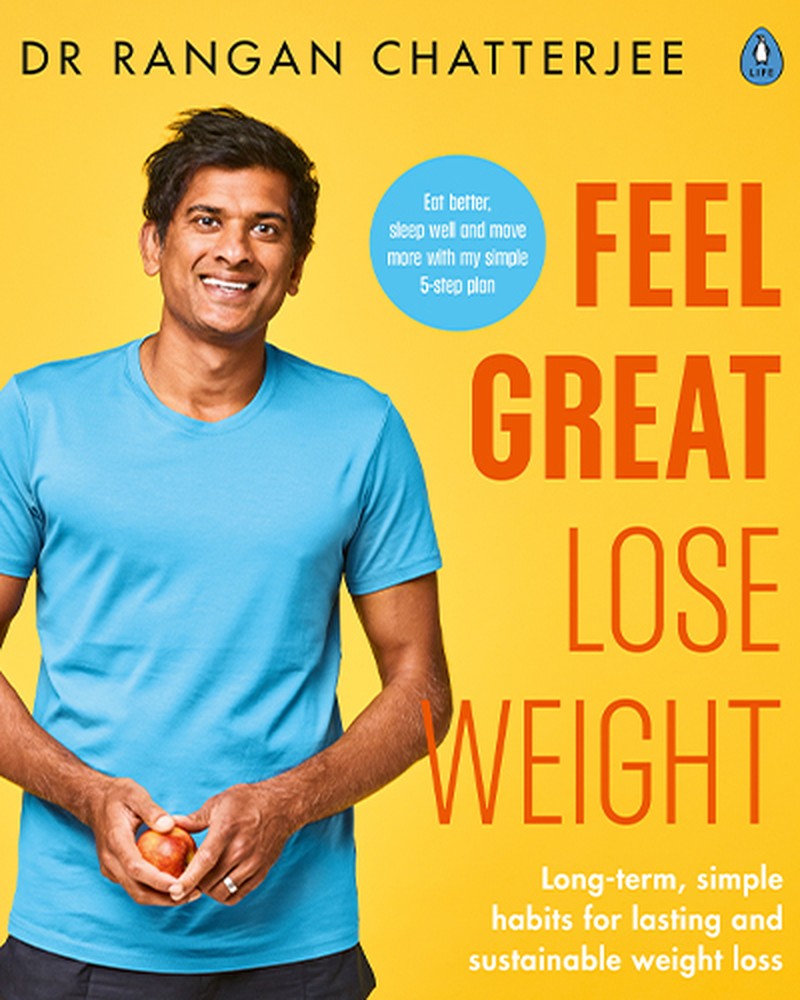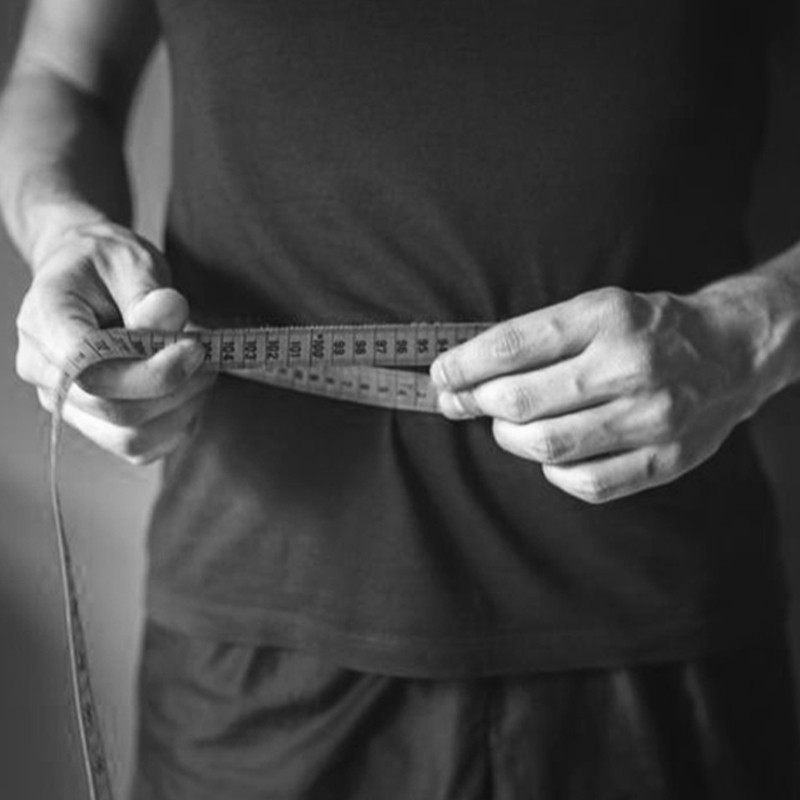The Best Way To Lose Weight
The Perfect Diet Doesn’t Exist
In my years of clinical practice, I’ve seen tens of thousands of patients and have seen people thrive on a variety of diets, which is why I’m diet agnostic and have no preference as to the eating style you adopt. I have clients that thrive on a low-carb diet, while others are better suited to a paleo or vegan diet. What is the common denominator with these diets? They are all based on whole foods. You can do low-carb diets badly, using low-carb junk foods, and there are bad, high-carb vegan diets too. But once you’re eating whole foods, you can start to play around. Try lowering your carb intake for a few weeks and see how you go. When it comes to the diet that’s going to work for you, your genes play a large role, but so does your microbiome. Everybody is different, so it’s important to experiment and see what works for you.
Stress Less
Science shows 80% of us change our eating habits in response to stress, with 45% of us eating more and 35% eating less. Last year was one of the most stressful in living memory for the majority of us. Almost half of the population is going to eat more in response to this stress, meaning weight gain is inevitable. If this is you, you don’t need a new diet in January, you need help managing your stress levels. So often, we’re trying to fix the wrong problem: it’s not about a lack of willpower, it’s about understanding what the real issues are.
Ease Up On Junk Food
I refer to the likes of chocolate bars, crisps, sweets and salty, fatty meals as ‘blissy foods’ because they trigger the bliss point in your brain. Food manufacturers know that when you open a bag of crisps it will be extremely hard to stop eating them – they know this because these foods have been built that way. Our brains are wired to respond to a few specific properties in food, including certain kinds of carbs, starch, sugar, protein, fat, salt and the savoury ‘umami’ flavour which is found in foods like cooked meats, broths and seaweed. When our food contains these flavours, the brain releases a chemical called dopamine. Once we’ve eaten these foods, our brains will even release dopamine in anticipation of eating these foods again. Succumbing to temptation is not you being weak, it’s your biology, but you can recondition it. One of the best things you can do is control your environment: don’t bring these foods into your house in the first place; instead, keep tasty whole foods to hand for when a craving does strike. Nothing beats a super-sweet apple or satsuma. If you’re really struggling with a sweet craving, drink a glass of sparkling water.
Focus On One-Ingredient Foods
One of the most powerful pieces of health advice is to eat real food, i.e. minimally processed foods that are as close to their natural state as possible. These are foods that don’t tend to come with ingredient labels – think carrots, apples, potatoes, avocados, fish and eggs. Try your best to ensure the majority of your diet is made up of foods like these –this can be as simple as having some lamb, sweet potatoes and broccoli for dinner. When you eat in this way, you’ll feel fuller for longer and are less likely to snack afterwards. Plus, when you eat these kinds of foods, your body will automatically manage your weight for you. One of the simplest ways to eat more one-ingredient foods is to shop on the outermost aisles of the supermarket, where most of these ingredients tend to live, and keep frozen veg in the house at all times – these are easy to steam, cheap to buy and can be super tasty, especially when you add some herbs and spices. Chopped garlic and onions in the fridge or freezer will also come in handy.
Think About How You Exercise
The common narrative is eat less, move more, but there’s a problem here. Moving more doesn’t always mean burning off more. People think that if they step on a treadmill and burn 300 calories, that allows them to add 300 calories on to their daily allowance, but that’s not how the body works. Our bodies can actually compensate and burn off fewer calories. Can you lose weight without doing any exercise? You can, but I wouldn’t recommend it. Exercise supports your mental health and confidence in a way other things can’t. The exercise you do should be in harmony with the rest of your lifestyle. If you’re killing it at work and then running for an hour afterwards four times a week, this could be too much. When you’re stressed, you release cortisol, the stress hormone, and high-intensity exercise such as running also increases cortisol. Prolonged high cortisol levels lead the body to think it’s under attack, making it hold onto fuel and fat to prepare you for the ‘emergency’ it thinks is coming. Try cutting back on high-intensity sessions – your stress levels will come down, you’ll sleep better and you’ll start losing weight.
Eat A Man’s Breakfast
If you wake up and eat a bowl of granola with low-fat yoghurt, only to feel peckish two hours later and nibble on some biscuits, then feel ravenous at lunchtime, it’s time to rethink what you eat for breakfast. The first meal you eat can set the tone for the rest of the day: it can impact your mood, concentration and hunger levels, and have a powerful influence on your subsequent choices. Try having ‘dinner foods’ for breakfast instead: think goat’s cheese with roasted vegetables; eggs, broccoli and potatoes; salmon and vegetables; or dahl and rice. Lots of my patients cook extra amounts at dinner the night before so they can reheat leftovers in the morning.
Proportion Your Portions
A good rule of thumb for eating in a way that promotes health as well as fat loss is what I call the 50:30:20 plate. Make up 50% of your plate with non-starchy vegetables (e.g. broccoli, greens, spinach and mushrooms); 30% should be protein (lean meat, fish, eggs); and the remaining 20% should be filled with starchy, whole-food carbs and/or natural sources of fat. Whole-food carbs include brown rice; natural fats include nuts, seeds and avocados.
Eat Mindfully
When we eat while distracted, not only do we eat more at that meal, but we also eat more at all subsequent meals. When working from home, make an effort to take a proper lunch break. For example, shutting your laptop and doing one or two minutes of 3-4-5 breathing can really help reduce your stress response. When you eat in a stressed state, you don’t digest and process your food properly, and you won’t feel as satisfied. Changing how you eat, as opposed to what you eat, can have huge consequences.
Sleep More
Improving your sleep could be the most important thing you do for weight loss. If you sleep for five-and-a-half hours per night as opposed to eight hours, on average you’ll eat 22% more the following day. Over five days of not sleeping well, this equates to an extra day’s worth of calories. When you haven’t slept well, you are also less able to resist temptation due to changes in the brain, meaning you’re more likely to reach for sugary, junk foods.
Rethink Your Snack Habits
We have a culture of snacking that we didn’t have 50 years ago. A recent study found just 10% of us eat three times per day as we used to in the 1970s, with some people now eating ten times per day. Reducing how often you snack can be really important in terms of losing weight, but also consider why you are snacking. Are you eating enough at mealtimes? If you are hungry two hours after a meal, you’re not eating enough – a decent, well-balanced meal should keep you full for around four hours. If you feel the urge to snack, experiment with increasing your protein intake, which will keep you fuller for longer. Also understand that consistently snacking will mean your blood sugars are constantly raised, so your body never goes into fat-burning mode.

Feel Great Lose Weight by Rangan Chatterjee is available now. For more information, visit DrChatterjee.com
DISCLAIMER: Features published by SLMan are not intended to treat, diagnose, cure or prevent any disease. Always seek the advice of your GP or another qualified healthcare provider for any questions you have regarding a medical condition, and before undertaking any diet, exercise or other health-related programme.
DISCLAIMER: We endeavour to always credit the correct original source of every image we use. If you think a credit may be incorrect, please contact us at [email protected].


